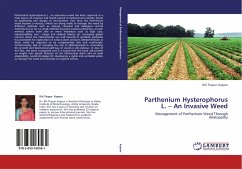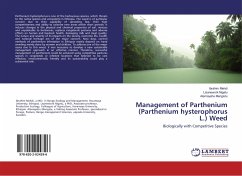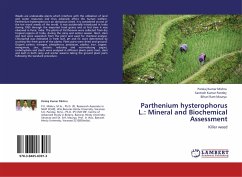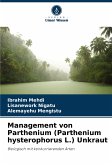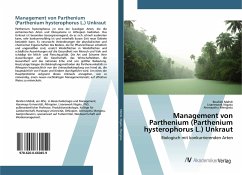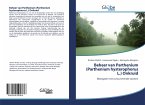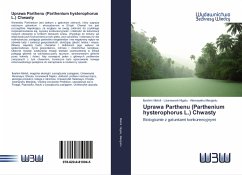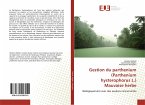Parthenium hysterophorus L., an obnoxious weed has been reported as a main source of nuisance and health hazard to mankind and animals, threat to biodiversity and danger to environment. Ever since the Parthenium weed became a menace, efforts are being made to manage the weed by different methods such as manual, chemical and biological control methods but so far no single method has been proved satisfactory as each method suffers from one or more limitations such as high cost, impracticability, non - target and residual toxicity etc. Increasing global concern about the indiscriminate use and hazards of synthetic pesticides has prompted for exploration of natural plant products (allelochemicals) as these could be expected to be comparatively safe and ecofriendly. Unfortunately, task of revealing the role of allelochemicals in controlling the growth and biochemical pathway of weeds is still arduous. In view of this fact, this book is prepared and it is hoped that this book will provide an insight into special features of the Parthenium plant and its wide adaptability, overall strategies for developing a viable and workable policy to manage the weed and minimize its negative effects.
Bitte wählen Sie Ihr Anliegen aus.
Rechnungen
Retourenschein anfordern
Bestellstatus
Storno

